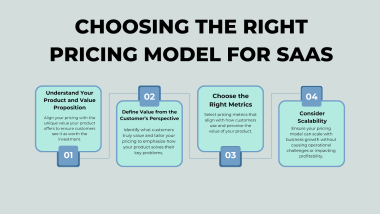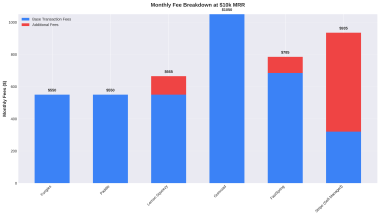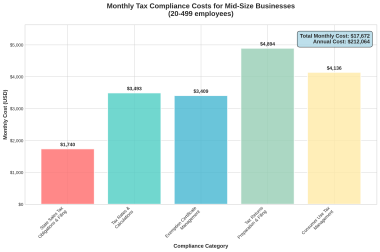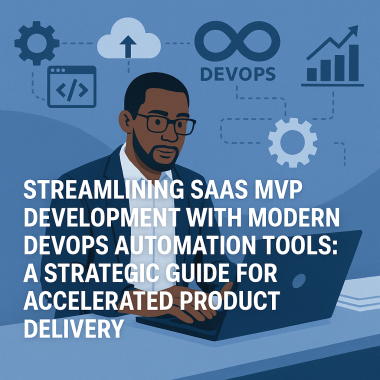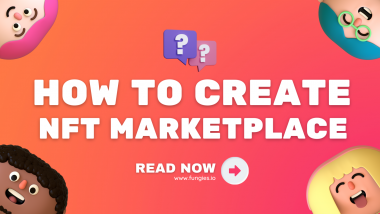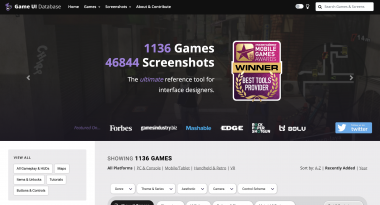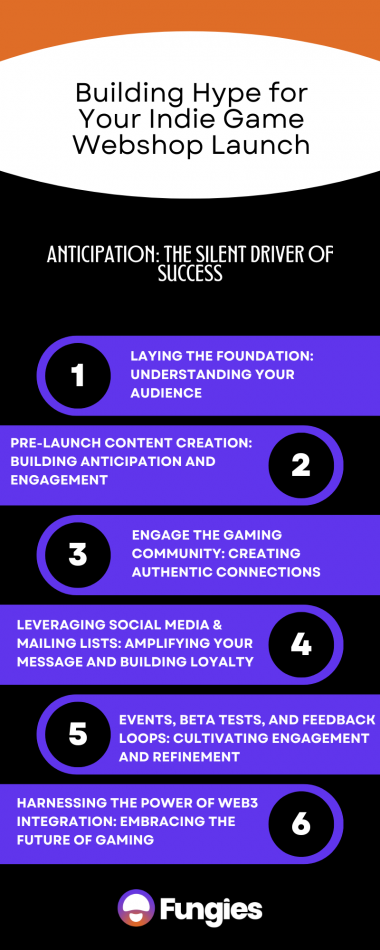Discover how to make your game store thrive with these 9 game store marketing strategies. Boost visibility, drive sales, and engage with your community.
Have you ever wondered how to boost sales in your game store? If so, you’re in the right place. In this article, we’ll explore the Game Store Marketing Guide: 9 Strategies for Success.
Marketing a game store can be challenging, but with the right strategies, you can attract more customers and increase sales. Effective marketing sets your store apart from competitors.
This guide will provide you with practical tips on how to market your game effectively. Now, let’s dive in!
Understanding Your Game Store Target Audience
Identifying your target audience is super important for any business, and game stores are no different. It helps you figure out who exactly you’re selling to, so you can tailor your marketing efforts to reach the right people.
There are a few different ways on how to advertise your game and identify your target audience:
- Demographics: This includes things like age, gender, income, and education level. You can find this information by looking at industry reports or doing your own market research. Interests: What kind of games do your customers like to play? What other hobbies and interests do they have? You can find this information by talking to your customers, doing surveys, or following them on social media.
- Behaviors: How often do your customers buy games? Where do they shop for games? How do they like to stay informed about new releases? This information can help you figure out the best ways to reach your target audience with your marketing messages.
Once you’ve identified your target audience, you can create a customer persona. This is a fictional character that represents your ideal customer.
Branding Your Online Game Store as a Brand
Having a unique brand identity is important for any business, but it’s especially important on how to market a game. There are a lot of game stores out there, so you need a way to make your store stand out from the competition. A strong brand identity will help you do that.
Your brand identity is the overall impression that people have of your store. It includes things like your logo, your color scheme, your website design, and even the way you talk to your customers. When all of these elements are working together, they create a strong and memorable brand that people will trust and come back to.
Here are some tips on how to market your game and creating a unique brand identity for your online game store:
- Know your target audience: Who are you trying to reach with your store? Once you know who your target audience is, you can start to develop a brand identity that appeals to them. For example, if your target audience is young gamers, you might want to use a bright and colorful logo and website design.
- Choose a unique and memorable name: Your store’s name is one of the first things that people will see, so it’s important to choose a name that is unique and memorable. It should also be relevant to the types of games that you sell.
- Create a logo: Your logo is the visual representation of your brand. It should be simple, memorable, and easy to recognize.
- Choose a color scheme: Your color scheme should reflect the overall tone of your brand. For example, if you want your store to be seen as fun and exciting, you might use bright and bold colors.
- Design a website that is user-friendly and visually appealing: Your website is your online storefront, so it’s important to make a good first impression. Your website should be easy to navigate and find the games that you’re looking for. It should also be visually appealing and reflect your brand identity.
- Use consistent branding across all of your marketing materials: This includes your website, your social media profiles, your email marketing, and even your packaging. When people see your brand elements everywhere they go, they’ll start to recognize and trust your brand.
Optimizing your Game Store Website
A user-friendly website design is essential for any online store, and how to market a game. Here are some key elements to consider:
- Navigation: Make sure your website is easy to navigate. Visitors should be able to find what they’re looking for quickly and easily. Use clear and concise menus, and avoid using too much jargon.
- Layout: Your website should have a clean and uncluttered layout. Don’t overload your pages with too much information or too many images. Use white space effectively to make your content easy to read.
- User Experience (UX): Think about the overall user experience when designing your website. Make sure your website is fast-loading and mobile-friendly. Also, make sure your checkout process is simple and easy to follow.
In addition to these design elements, you can also optimize your website for search engines (SEO) to improve visibility. Here are some tips:
- Keyword Research: Identify relevant keywords that people are likely to use when searching for game stores. Then, incorporate those keywords into your website’s content and meta tags.
- Internal Linking: Create internal links between your web pages. This will help search engines understand the structure of your website and improve your website’s ranking.
If you don’t have a website yet, you can use website builders like Fungies to create a user-friendly and SEO-friendly website for your game store. This platform offer drag-and-drop functionality and templates to get you started quickly. Even if you don’t have any coding experience.
Social Media Marketing for Game Stores
Social media is a powerful tool to connect with gamers and market your game store. But with so many platforms out there, which ones should you focus on? Here’s a breakdown:
- Choosing Platforms: The best platforms depend on your target audience. If your target audience is young gamers, platforms like TikTok and Instagram might be a good fit. For older gamers, Facebook and Twitter might be better options.
Once you’ve chosen your platforms, here are some content strategies to keep your audience engaged:
- Videos: People love watching videos! Create short and engaging videos showcasing new games, or even funny gaming moments. Platforms like YouTube and Twitch are great for video content.
- Memes: Memes are a fun way to share relatable content and connect with your audience. Look for trending gaming memes or create your own with a twist related to your store.
- Live Streams: Host live streams where you play games, answer customer questions, or even interview game developers. Live streams are a great way to interact with your audience in real time.
Here are some additional tips for social media marketing:
- Post Regularly: Don’t be a ghost! Aim to post regularly to keep your audience engaged.
- Interact with your followers: Respond to comments and messages to show your customers you care.
- Run contests and giveaways: Everyone loves free stuff! Running contests and giveaways is a great way to generate excitement and attract new followers.
- Use relevant hashtags: Hashtags help people find your content. Use popular gaming hashtags and hashtags specific to the games you sell.
Game Store Email Marketing
Email marketing is a great way to connect with your customers directly and keep them informed about your game store. Here’s how to get started:
Building Your Email List:
- Offer Incentives: Encourage people to sign up for your email list by offering exclusive discounts or early access to new releases.
- Website Sign-up: Make it easy for people to sign up for your email list on your website. Include a clear sign-up form with a short explanation of what they’ll receive.
- In-store Sign-up: Offer in-store sign-ups at the checkout counter. This is a great way to capture the email addresses of people who are already interested in your store.
- Social Media Promotion: Announce your email list on your social media platforms and encourage people to sign up.
Creating Engaging Newsletters:
- Personalize your emails: Use your customer’s name in the email greeting to make it feel more personal.
- Focus on Value: Don’t just try to sell stuff! Offer valuable content like game reviews, upcoming release highlights, or even esports news.
- Keep it Short and Sweet: People are busy, so keep your emails concise and to the point.
- Use Eye-catching visuals: Include high-quality images and videos in your emails to grab attention.
- Call to Action: Tell your readers what you want them to do after reading your email. This could be visiting your website, pre-ordering a game, or following you on social media.
Content Marketing: Blogging for your Game Store
Having a blog for your game store is a great way to attract new customers and keep existing ones engaged. Here’s why:
- Builds Trust and Expertise: A blog allows you to share your knowledge and passion for games. This helps you establish yourself as a trusted source and builds trust with potential customers.
- Drives Traffic to Your Store: Interesting blog posts can keep people coming back to your website. This gives you more opportunities to promote your store and the games you sell.
Here are some ideas for blog content:
- Game Reviews: Write reviews of new and popular games.
- Top 10 Lists: Create lists like “Top 10 Must-Have Games for [Genre]” or “Top 10 Upcoming Games to Watch.”
- Gaming Tips and Tricks: Share helpful tips and tricks for popular games.
- Gaming News and Updates: Keep your readers informed about the latest gaming news and updates.
Game Store Influencer Partnerships
Influencers are gamers with a large following on platforms like YouTube, Twitch, or Instagram. Partnering with the right influencers can be a powerful way to promote your game store and reach a wider audience. Here’s how to make it work:
Finding the Right Influencers:
- Match their audience to yours: Look for influencers who play the same types of games your store sells.
- Consider their reach: Don’t just focus on follower count, look for influencers who actively engage with their audience.
- Check their content style: Make sure the influencer’s content style and personality fit with your brand image.
Collaborating with Influencers:
- Offer sponsored content: Partner with influencers to create videos or posts promoting your store.
- Host giveaways: Team up with influencers to run contests or giveaways on their channels, with prizes from your store.
- Product reviews: Send influencers games in exchange for honest reviews on their channels.
- Live stream collaborations: Do a live stream with an influencer where you play games together and chat with viewers.
Paid Advertising: Pay-Per-Click (PPC) for Game Stores
Paid advertising can be a great way to reach a wider audience and how to market a game store quickly. One popular option is Pay-Per-Click (PPC) advertising. Here’s how it works:
- Basically, you pay a platform like Google Ads or Facebook Ads to show your ads to people searching for things related to games.
- You create ads with eye-catching headlines and descriptions that promote your store or specific games.
- Every time someone clicks on your ad, you pay a small fee. This means you only pay when someone shows actual interest in what you’re offering.
Here are some tips for using PPC advertising effectively:
- Target your ads carefully: Choose keywords that people are likely to use when searching for game stores or specific games you sell.
- Create compelling ad copy: Use strong headlines and descriptions that grab attention and make people want to click on your ad.
- Set a budget: Decide how much you’re willing to spend on advertising and stick to your budget.
- Track your results: Keep an eye on how your ads are performing and make adjustments as needed.
Remember, PPC advertising can be a complex topic. There are many resources available online to help you learn more about it.
Tracking and Analyzing Results: Making Your Marketing Even Better
So, you’ve put in the work to create a killer marketing strategy for your game store. But how do you know what’s working and what’s not? Here’s where tracking and analyzing results come in.
- Gather Customer Feedback: Ask your customers for feedback! You can do this through surveys, email
- Track Social Media Engagement: Look at how many people are liking, commenting on, and sharing your social media posts. This will give you a sense of what kind of content resonates most with your audience.
- Monitor Campaign Performance: If you’re running paid advertising campaigns. You should track how many clicks and conversions (sales) your ads are generating. This will help you see which campaigns are delivering the best results.
Why is this important? By analyzing this data, you can make data-driven decisions about your marketing strategy. This means basing your choices on real information about what’s working and what’s not, instead of just guessing.
For example, if you see that a certain type of social media post gets a lot of engagement, you can create more content like that. This will help you attract more customers, boost sales, and ultimately, make your game store a success!
Parting words
In conclusion, mastering game store marketing is crucial for success in the competitive gaming industry. By following these nine strategies, you can effectively market your game store, attract more customers, and increase sales. If you don’t have a website yet, you can use website builders like Fungies to create a user-friendly and SEO-friendly website for your game store. This platform offers drag-and-drop functionality and templates to get you started quickly, even if you don’t have any coding experience.
